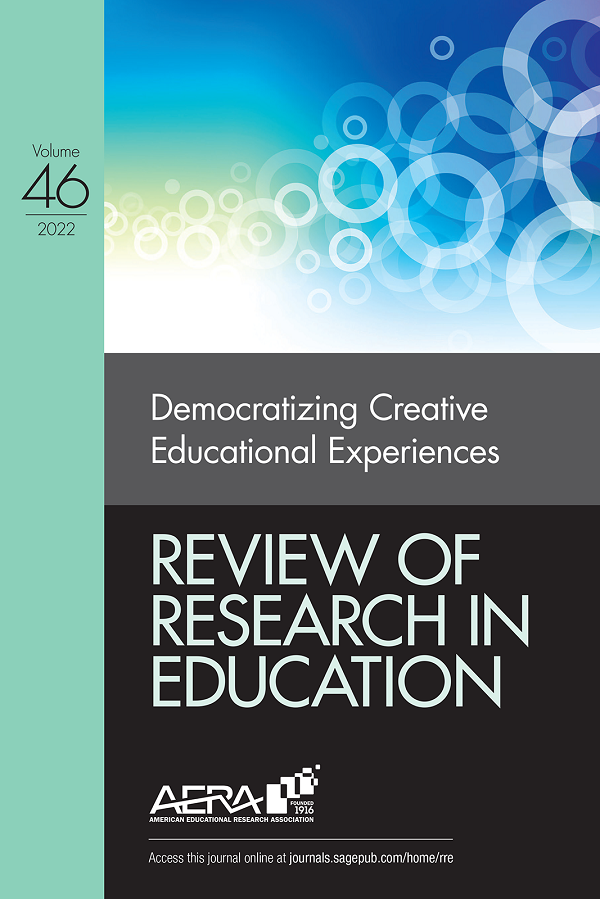批判反叙事作为教育公平的变革方法
IF 2.4
1区 教育学
Q1 EDUCATION & EDUCATIONAL RESEARCH
引用次数: 38
摘要
反叙事最近在教育研究中出现,成为一种很有前途的工具,可以在我们日益多样化的学校和社区中刺激教育公平。基于批判性种族理论和话语研究方法,包括叙事探究、生活史和民族志,反叙事在多元文化教育、文化敏感教育学和其他多样性教学方法中找到了归宿。本章提供了一个系统的文献综述,探讨了反叙事在教育学和研究中的地位。基于我们的主题分析,我们认为,由于缺乏能够为教育公平带来变革行动的统一方法,反叙事在教育学和研究中的潜力有限。本章最后提出,批判性反叙事是一种变革性方法,包括三个关键组成部分:(1)批判性种族理论是一种探究模式,(2)批判性反思和生成性是一种实践模式,它将反叙事的使用统一到研究和教育学中,以及(3)为实现有色人种教育公平的根本目标而采取的变革行动。本文章由计算机程序翻译,如有差异,请以英文原文为准。
Critical Counter-Narrative as Transformative Methodology for Educational Equity
Counter-narrative has recently emerged in education research as a promising tool to stimulate educational equity in our increasingly diverse schools and communities. Grounded in critical race theory and approaches to discourse study including narrative inquiry, life history, and autoethnography, counter-narratives have found a home in multicultural education, culturally sensitive pedagogy, and other approaches to teaching for diversity. This chapter provides a systematic literature review that explores the place of counter-narratives in educational pedagogy and research. Based on our thematic analysis, we argue that the potential of counter-narratives in both pedagogy and research has been limited due to the lack of a unified methodology that can result in transformative action for educational equity. The chapter concludes by proposing critical counter-narrative as a transformative methodology that includes three key components: (1) critical race theory as a model of inquiry, (2) critical reflection and generativity as a model of praxis that unifies the use of counter-narratives for both research and pedagogy, and (3) transformative action for the fundamental goal of educational equity for people of color.
求助全文
通过发布文献求助,成功后即可免费获取论文全文。
去求助
来源期刊

Review of Research in Education
EDUCATION & EDUCATIONAL RESEARCH-
CiteScore
15.70
自引率
0.00%
发文量
14
期刊介绍:
Review of Research in Education (RRE), published annually since 1973 (approximately 416 pp./volume year), provides an overview and descriptive analysis of selected topics of relevant research literature through critical and synthesizing essays. Articles are usually solicited for specific RRE issues. There may also be calls for papers. RRE promotes discussion and controversy about research problems in addition to pulling together and summarizing the work in a field.
 求助内容:
求助内容: 应助结果提醒方式:
应助结果提醒方式:


